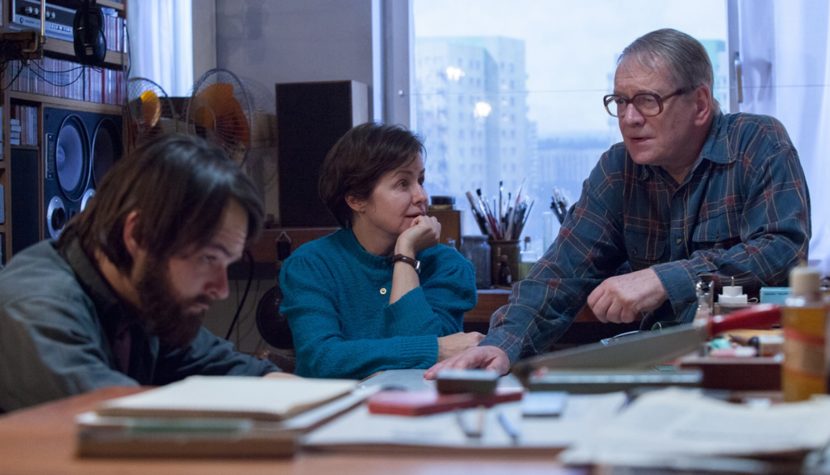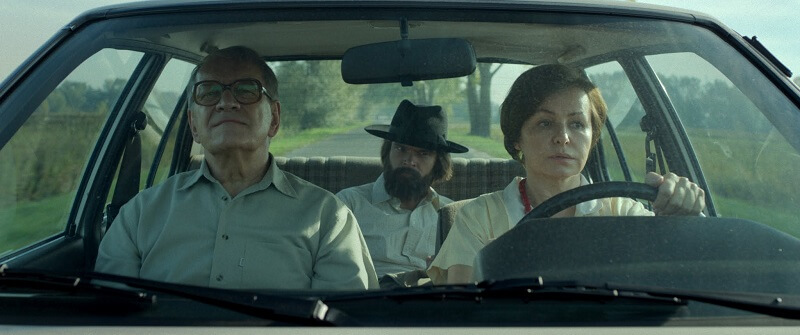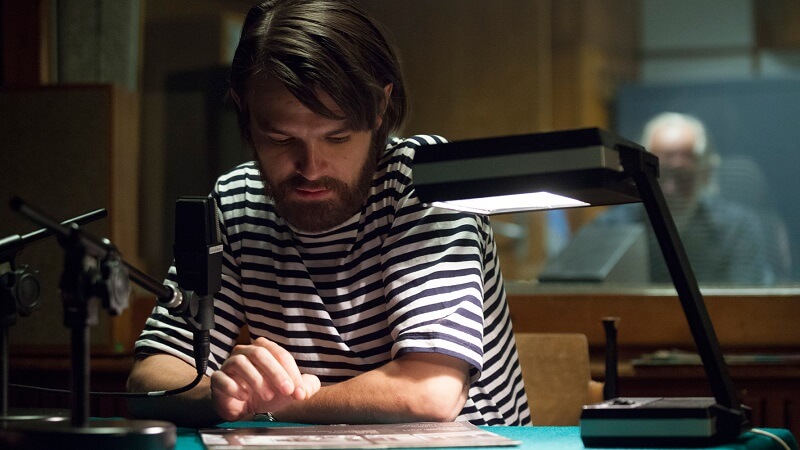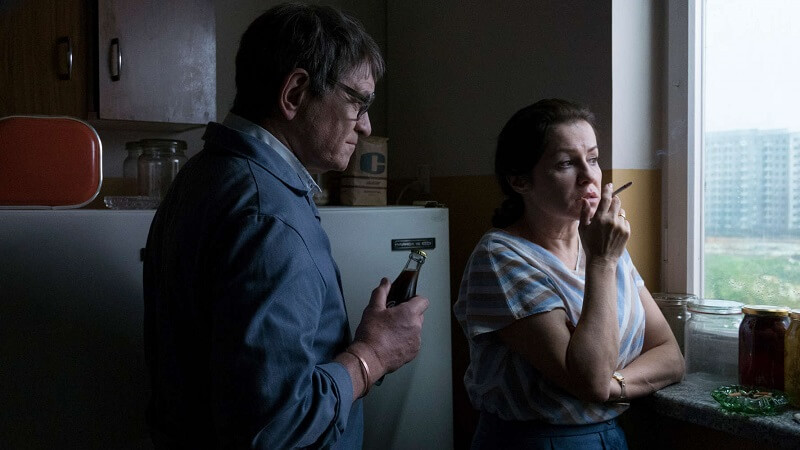THE LAST FAMILY. A fascinating Polish film

I was still a child when my parents took me to a painting exhibition organized by the local museum. I remember that while staring at the visions fixed on fibreboards, I might not be able to fully interpret what I see, but the artist’s works worked very well already in the visual aspect, and yes, they impressed me.
Some time later, I listened to my father’s stories about his beloved band, Depeche Mode, and the radio announcer translating the band’s lyrics live. My father recorded his broadcasts and then wrote down these Polish translations in a notebook – even when he talked about it years later, you could see the excitement that he had the opportunity to learn what his idols were singing about when he was young, and I couldn’t help but appreciate the guy who introduced teenagers with good music and let them develop this passion.
Zdzisław and Tomasz Beksiński. 2/3 of the family I had the opportunity to look into the apartment.
We met the Beksińskis in 1977. Parents – Zdzisław and Zofia – live with their mothers in an apartment in a Warsaw housing estate. The same one where their son, Tomek, is just moving in. The camera follows the characters and watches them in various situations. We observe both individuals – the older Beksiński working on subsequent paintings, the younger in his apartment, unable to deal with his own self, seeking solace in music and films, and finally Zosia Beksin=ńska, on whose face you can see all the care that surrounds her husband and son – as well as the whole family. This is not intrusive spying – we often listen to the Beksinskis’ conversations and sometimes quarrels from the hallway, sometimes focusing our attention only on one person, but also in the form of home recordings passionately created by Zdzisław, who does not fail to document every single moment of his life, even if this is the moment that would not qualify for such documentation.

Thus, we get to know the characters’ relationships and attitudes towards each other somewhat fragmentarily. This could be treated as a flaw, but Matuszyński’s film, showing relatively little, says a lot at the same time. Almost thirty years are divided here into fragments taking place several years apart, but this does not interfere with the reception.
I don’t need to know how Tomek got the job of film translator or radio announcer. I don’t wonder what the process of creating Zdzisław’s first painting looked like. That’s not what this movie is about. It is a fascinating study of the psyche and relationships of complex personalities, manifested not only in brilliant, volatile dialogues, but also in pointed, if small nuances. Despite these several years of jumps between successive scenes, I know what they feel at a given moment, I know what desires they have, because I can see it in their eyes and gestures.
Besides, they also talk about it very honestly – despite all the dysfunction that prevails in their group, they still feel that it is actually a family. Tired of herself, burdened with a heavy burden, eccentric, but still supporting each other in some way and wanting the best for each other, even if it means quite controversial solutions, especially those proposed by Zdzisław.
Actors find themselves very naturally in this. I had the opportunity to listen live to Dawid Ogrodnik, who shared with the audience ways to prepare for the role and the atmosphere on the set. It was clear from the message that each of the performers was immersed in their character for several months and did not leave it even after the end of the shooting day. They became the Beksińskis, and although it sounds like a trivial phrase, it is actually visible on the screen.
Andrzej Seweryn is in a class of his own – there is so much naturalness and freedom in his acting, so many perfectly spoken lines that I found myself not knowing whether Zdzisław, shown in the fantastically prepared archival materials, is a character or an actor. He is kind but also eccentric. He says that he hides features that he is afraid to bring to light. It’s ambiguous and that’s great.

The aforementioned Ogrodnik absolutely magnetizes and draws you to the screen. He charges but never goes out of bounds. In his performance, Tomasz Beksiński is a tragic character – a man burdened with a mental problem, so fascinated by the world of film and music, so passionate that the real world absolutely does not meet his expectations and leads to the inevitable end. You can see the twinkle in Ogrodnik’s eye when he translates The Spy Who Loved Me live, when he plays a song by Yazoo or Ultravox on the radio at a disco, and you can see resignation and sadness when he tells his family in an absolutely excellent scene of a common conversation that he probably already really died.
A little more in the background is Aleksandra Konieczna as Zofia, but it is a very good, if muted, role and, above all, sheds an interesting light on Beksińska herself, who appears here as the glue connecting all this almost grotesque madness rushing in the family, she worries about her husband and son, and at the same time is the most mundane of the characters and a contrast to the emphasized eccentricity of Zdzisław and Tomek, and thanks to this, the person closest to the viewer.

An interesting contrast for the family, but also for Beksiński’s paintings, is their surroundings. This contrast is noticed in the film itself by the character of Andrzej Chyra, who is surprised when he visits the Beksińskis’ apartment that it is so ordinary. Because in fact, one might think that the creator of works that look like this certainly lives in a proportionately disturbing environment. Meanwhile, no, just as Zdzisław is a kind gentleman on the outside fascinated by the technical possibilities of the camera, so his apartment is a place where each of us could live (by the way, rendering its appearance in relation to what can be seen on real recordings is a masterpiece) . It makes us feel like a guest in their home even more. Conclusion after visit?
A fascinating visit to a fascinating family. A mature, conscious film that tackles a not-so-easy topic, subtle at the same time, but also a strong blow to the mind, which, moreover, stays. Just like Zdzisław Beksiński’s paintings, which I saw a long time ago in a museum. Impressive.

